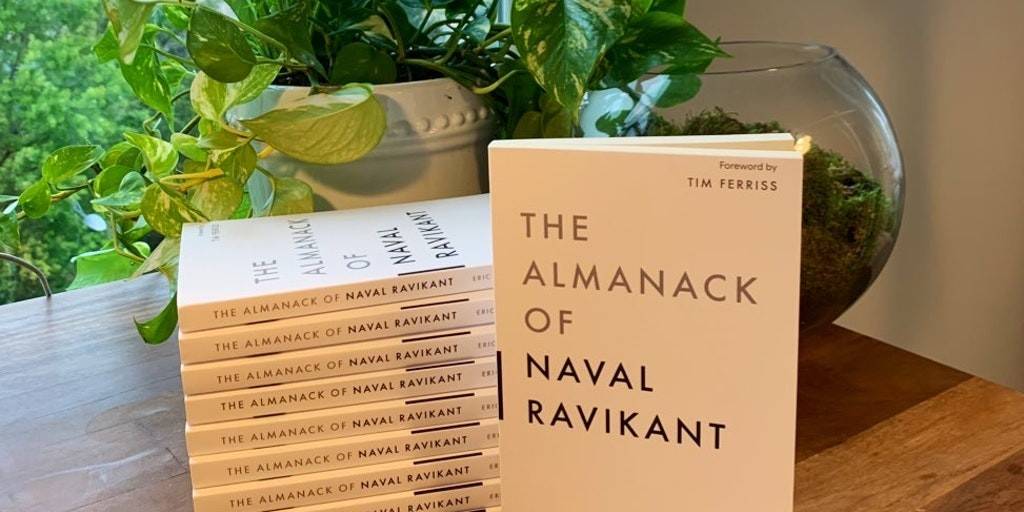Discovering “The Almanack of Naval Ravikant”
As an avid reader and member of the Supersouls community, I am always on the lookout for books that can deepen my understanding of marketing analytics, self-improvement in spiritual contexts, and economics in an investing context. When a fellow member recommended ‘The Almanack of Naval Ravikant’ I was intrigued. Initially focused on the economics of investment, the book soon turned towards self-improvement in a spiritual context – touching on two of my key areas of interest. It was no surprise when the book was declared the community’s book of the month and became a discussion point for the upcoming retreat. But the true mark of a great book is how it impacts our lives, and for me, ‘The Almanack’ has inspired me to start taking cold showers every morning since early March. It’s a small but powerful change that the author explains in detail in the book. Refer page 168-169
Lesson 1 – Choose a Difficult Path for Long-Term Growth and Satisfaction
This book provokes your thoughts by challenging conventional wisdom and offers a fresh perspective towards success and happiness. One particular piece of advice that stood out to me was to choose the more difficult and painful path in the short term when faced with two equal choices.
This goes against the common tendency to take the path of least resistance, but it can lead to greater growth and satisfaction in the long run. However, the author also acknowledges the reality that stress often pushes us towards taking the easier option, especially when it comes to capturing quick wins. I found this advice to be helpful in situations where I was tempted to take the easy way out, and it has encouraged me to be more deliberate in my decision-making.
Lesson 2 – Create Empty Space for Innovation and Creativity
Another insight that I gained is the importance of creating empty spaces in our lives. The author advises that we need to schedule at least one or two days per week where we have no meetings or other commitments, allowing us to simply think and reflect. This advice may seem counter intuitive in a culture that glorifies busyness and productivity, but Ravikant argues that true innovation and creativity only come when we have time and space to think deeply. I found this advice to be particularly relevant in today’s fast-paced world, where we are constantly bombarded with distractions and demands on our time. By creating empty spaces in my calendar, I’ve been able to slow down, reflect, and generate new ideas.
Lesson 3 – True Happiness Arises Out of Suffering
Ravikant’s view of happiness also challenges our conventional notions of what it means to be happy. For example, fornotes that many people mistakenly believe that happiness is all about positive thinking and actions when in reality, it’s much more complex. He argues that every positive thought contains a seed of negativity within it and true happiess often arises out of suffering.
This idea is reminds me the teachings of the Gita, and I found it to be both thought-provoking and comforting. In particular, Ravikant emphasizes the importance of letting go of our desires for external things, which can often be a source of stress and unhappiness. This is something that I’ve been working on since reading the book, and I’ve already noticed a positive shift in my mindset.
Lesson 4 – A Calm Mind, a Fit Body, and a House Full of love Must be Earned
One quote in the book that particularly stood out to me was: ‘A calm mind, a fit body, and a house full of love, these things cannot be bought. They must be earned.’
It is a simple yet powerful statement that highlights the importance of what truly matters in life – health, love, and peace of mind. Ravikant notes that while many of us pursue wealth, health, and happiness in that order, their true importance is reversed. Real happiness, he argues, comes as a side effect of peace, and most of it comes from acceptance rather than changing our external environment.
This is a concept that can be difficult to grasp, but Ravikant provides practical advice for cultivating a sense of peace and indifference to things outside of our control. Ultimately, his message is clear – true happiness comes from within, and it is up to each of us to earn it through our actions and mindset.”
Lesson 5 – Embrace Your Uniqueness and Focus on the Present Moment
Another insightful advice is the reminder that no one can beat you at being you. We are uniquely qualified at something, possessing specific knowledge, capability, and desires that no one else in the world does, purely from the combinatorics of human DNA and development.
Ravikant encourages us to listen and absorb from others but to avoid trying to emulate them, as it’s a fruitless endeavour. Instead, we must pay attention to the voice in our heads as an observer, recognizing that memory and identity can be burdens from the past that prevent us from living freely in the present. Being peaceful comes from having a clear mind free of thoughts, which is difficult to achieve if we constantly think about the past or future. This advice is aligned with the teachings of Bhagvat Geeta and is a valuable reminder to focus on being our authentic selves and living in the present moment.
Lesson 6 – Sticking to Science and the Basics for a Clear Understanding of the World
“Two other concepts that caught my attention in ‘The Almanack of Naval Ravikant’ were the importance of sticking to science and the basics, and the idea that the world reflects our own feelings back at us. Ravikant notes that hard sciences and macroeconomics provide a solid foundation for understanding the world, and that straying too far from these foundations can lead to confusion about what is true and false.
Lesson 7 – The World Reflects Our Feelings Back at Us
In addition, he reminds us that reality is neutral – there is no concept of right or wrong, good or bad, in the natural world. It is only through our external programming and societal conditioning that we compete in multi-player games and judge ourselves and others. Ultimately, Ravikant argues that life is a single-player game and that all our interpretations and memories are uniquely our own. This perspective is a powerful reminder to focus on our own inner journey and to recognize the importance of cultivating a positive and reflective mindset.
Conclusion: A Must-Read Book for Personal Growth and Understanding
Overall, The Almanack of Naval Ravikant is a powerful and thought-provoking book that challenges our conventional wisdom and offers a fresh perspective on success and happiness. In particular, Ravikant’s advice to take the more difficult and painful path in the short term when faced with two equal choices, the importance of creating empty space in our lives, and the idea that the world reflects our own feelings back at us are just a few of the many powerful concepts in this book. This book is a must-read for anyone seeking to deepen their understanding of themselves and the world around them, and I highly recommend it.

Dharmendra Gupta, a seasoned marketing professional with over 22 years of experience in marketing management. His expertise in strategic planning, demand generation, brand positioning, marketing technologies, and global and multichannel digital campaigns has won him multiple awards for his work in digital marketing, and he has been recognized as one of the Top 100 Marketing Technologists by World Marketing Congress, CMO Asia, UBS Forum and Adobe Digi100.
But there’s more to this author than just his impressive marketing career. He is also a dedicated practitioner of meditation and yoga, with a passion for nature and organic living that has led him to adopt a minimalist lifestyle. He believes that mindfulness and spirituality are essential to a well-rounded life, often incorporating these practices into his daily routine. As an avid reader, he enjoys exploring books on topics such as self-improvement, spirituality, and economics. In addition, he is a guest speaker and mentor at leading management institutions, passionate about sharing his knowledge and helping the next generation of marketing professionals.

